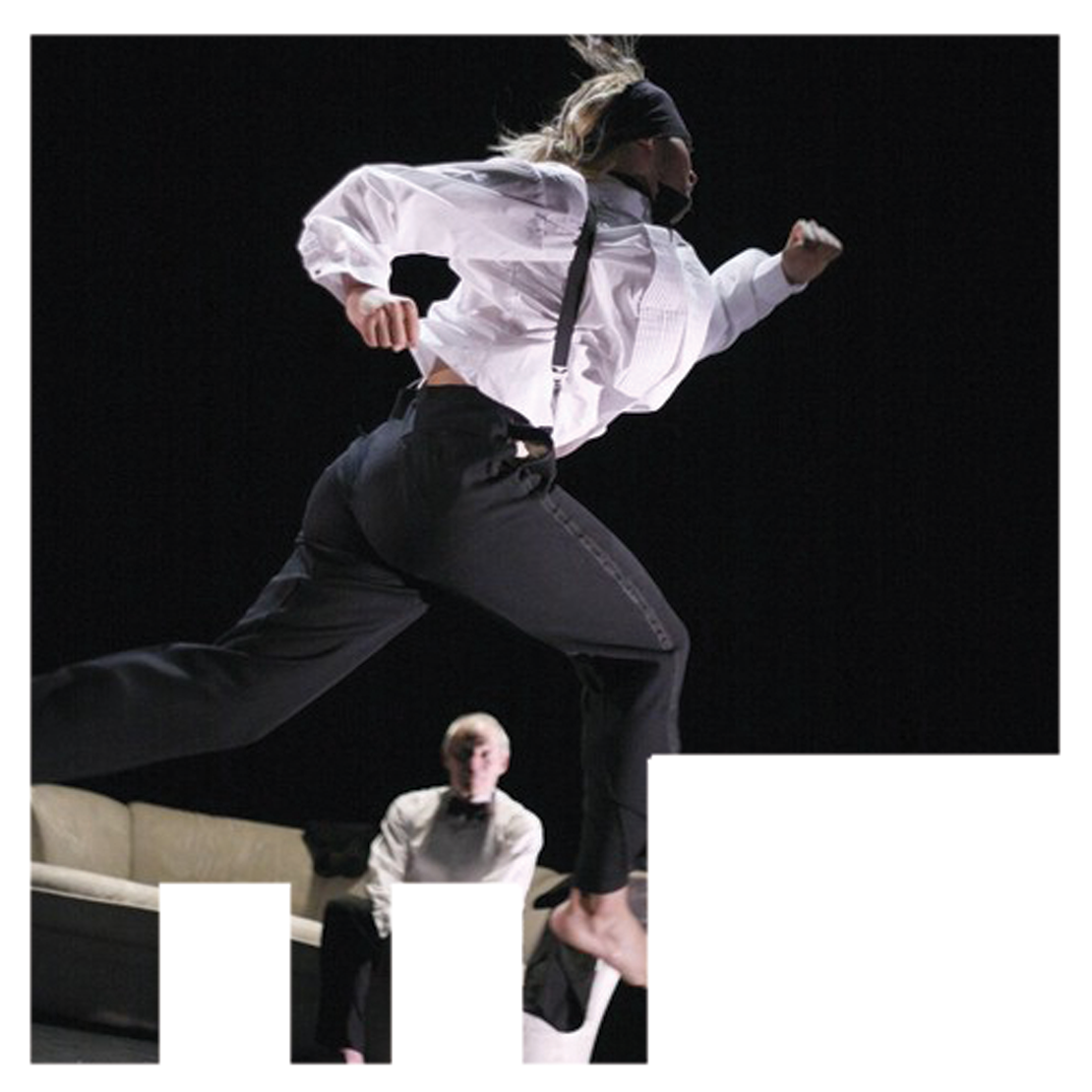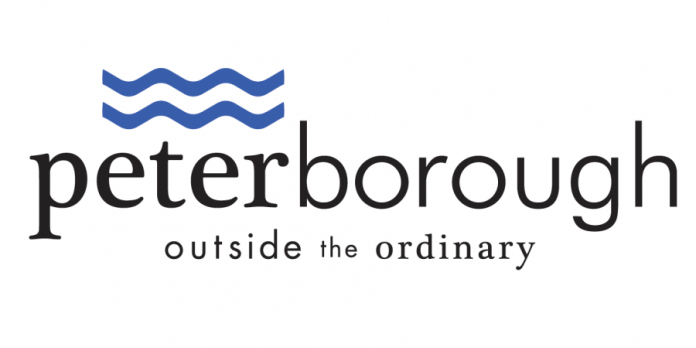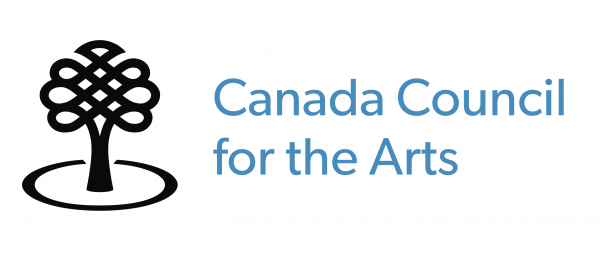
Double Take: Fujiwara and James
April 5 & 6, 2013 @ 8PM
Market Hall, 140 Charlotte St.
April 5, Following the show: Post-Show Reception. Meet the artists in the lobby immediately following the show.
April 6, Before the show: Pre-Show Chat with Bill James in the Market Hall lobby at 7pm. Learn more about the artists on tonight’s program and their work.
Tickets:
$22/$15 students, underwaged
Lost and Found
Choreography and performance
Denise Fujiwara
Costume design and properties
Janieta Eyre
Music
Philip Strong
Lighting Design
Roelof Peter Snippe
Dramaturge
Philip Shepherd
“Lost and Found is a compelling dance portrait. It is not so much originality of theme that makes Fujiwara eminently watchable, but her careful construction of the visual/physical manifestation… In the final analysis, there is something very satisfying about the mature works of senior artists such as Fujiwara… To have an idea for creation is one thing; to be able to develop that idea into a meaningful artistic journey is the fruit of years of experience.” Paula Citron, The Dance Current, April 13, 2010
Lost and Found is a co-production of The CanDance Network Creation Fund, Dance Works, Neighbourhood Dance Works, Live Art Dance Productions and Public Energy and supported by the Dance Section of the Canada Council for the Arts.
October 16, 1978
Director
Bill James
Choreography and Performance
Corey Wournell
Peter Hessel
Bill James
Music
Phillip Glass, Harold Budd, Francisco Lopez, Djuma Soundsystem
Lighting Design
Roelof Peter Snippe
October 16, 1978 is a collective creation, choreographed and performed by Peter Hessel, Bill James and Corey Wournell, and directed by Bill. The title refers to the date when Bill met the first love of his life. The trio was created over a three-month period, during which time the dancers tried to imagine a dreamscape of loves lost and found. The creative process has been an intergenerational sharing of ideas, lives and emotions between Corey and Peter, both recent graduates of the School of Toronto Dance Theatre, and Bill, who completed his training in the 1970s.
This work signals a number of new directions for Bill: the influence of yoga on his work, creating in a collective manner, and appearing as a dancer in his own group work, which surprisingly he has never done. While he may not continue dancing in his work, he feels that creating collectively is a direction he will pursue in future creations.
Bill also feels that his recent immersion in yoga, as a practitioner and teacher, has influenced how his body responds to ideas. (Among other activities, he has just completed a 6-month period of intensive training to become a certified Kripalu Yoga teacher.) His yoga training has opened up new channels to source movement ideas. He says that for him, the difference between yoga and dance can be summed up as ‘dance is what it looks like; yoga is what it feels like’.

Artist Biographies
Denise Fujiwara
fujiwaradance.com
2011 marks Denise Fujiwara’s 33rd year as a dance artist. She is one of the most diverse talents to evolve on the Canadian dance scene; a sought after choreographer, dancer, teacher, impresario and actor.
She began her interesting career in childhood, as a gymnast, when she competed internationally for the Canadian Rhythmic Gymnastics team. Upon completing an Honours B.F.A. in Dance at York University, she became one of the founders of T.I.D.E. (Toronto Independent Dance Enterprise). Here she was instrumental in the creation of a diverse body of work for the now-defunct but still notorious company that danced across Canada for 10 years.
In 1991 she formed her own company, Fujiwara Dance Inventions, to house the development of her solo projects. To date her six solo dance concerts, Spontaneous Combustion, Vanishing Acts, Sumida River, Elle Laments, Brief Incarnations and Komachi have garnered praise across Canada and have toured to festivals in the United States, South America, Europe and Asia. Her recent forays back into ensemble choreography resulted in Conference of the Birds, a work for 9 dancers and 3 musicians that was called, “– the best thing to premiere at the (fFIDA) festival in many a year”, and NO EXIT, “- so precisely performed it needs no words.” by the Toronto Star. This year she will premiere Lost and Found at Toronto’s DanceWorks. This work has been commissioned by the CanDance Network of Presenters and will tour eastern Canada in the spring of 2010.
Fujiwara’s approaches to the disciplines of dance technique, improvisation, performance and choreography have developed over more than three decades of intensive research, practice and performance. She has had remarkable mentors including Tokyo Butoh master, Natsu Nakajima, Montreal dance pedagogue, Elizabeth Langley, the now disbanded Mangrove Dance Collective of San Francisco, the American theatre director, Anne Bogart, and the late great Canadian choreographer, Judy Jarvis.
In addition to her career as a dance artist, Ms. Fujiwara works in film and television. Walls, a CBC Television documentary about her life and work by celebrated filmmaker Jeremy Podeswa, won the 1995 Gemini Award for Best Performing Arts Program. In 1997 she co-founded the CanAsian International Dance Festival where she is the Artistic Director. Her work with CanAsian promotes the work and development of dance artists from across Canada and beyond.
Bill James is widely known for his vision of dance in unconventional spaces; his multi-disciplinary collaborations with artists and scientists; and his work in community arts. Based in Toronto for much of his 30-year career, James moved to a farm just outside Peterborough, Ontario (pop 75,000) in 2002. From this base he continues pursue all facets of his artistic vision with collaborators in both Toronto and Peterborough, while pursuing a second career raising a variety of farm animals.
A native of North Dakota, James moved to Winnipeg to train with the Royal Winnipeg Ballet, then spent 10 years as a dancer in Ottawa and almost 20 years in Toronto, where he acquired a national reputation for his engagement of unusual sites and civic spaces, as both a creator of his own work and an animator of other artists’ work. Bill has collaborated with many composers, visual artists and filmmakers in performance, installation, film and media art projects throughout his career, in North America, Europe and Asia.
His 1986 work, Atlas Moves Watching, put the audience in a storefront watching dancers getting out of limos and dancing on streetcars, while his Seven Mountains was performed on seven large-scale ramps in an abandoned warehouse. From 1995 to 1999 he co-produced the series Art in Open Spaces, which commissioned dance and music creations in and around public sculptures and fountains, and in 2000 and 2003 he co-directed the Shared Habitat Festival of Art and the Environment, a symposium and festival focused on biology and dance.
Bill James’ work was first seen in Peterborough in 1989 with a full-length piece co-commissioned by Peterborough’s Artspace and Toronto’s Harbourfront Centre. In 2001 he came to the city to collaborate with Peterborough visual artist Shelagh Young on the creation of Panopticon, presented by Peterborough New Dance at the Market Hall and subsequently at the Winchester Street Theatre in Toronto.
In 2002 he and his partner moved from downtown Toronto to a farm on the Indian River just outside Peterborough. Since then he has continued to make dance, including: two more collaborations with Young; a commission for the Peterborough Dance Collective; a number of community youth art projects; Dancing In The Streets, a community project involving 400+ performers aged 2 to 80; Domestic Science, a solo for himself that he presented at the Older and Reckless series in Toronto; and two new short works for Old Men Dancing, as well as commissioning a full evening of works for Old Men Dancing from 4 choreographers.













